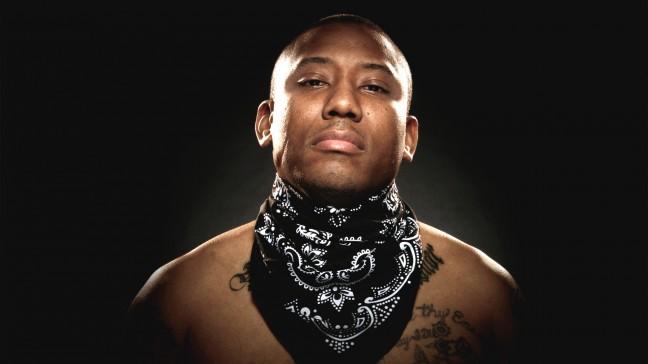Hip-hop has a Darwinian culture to it. The “survival of the fittest” mantra is seen in the coming and going of countless artists, especially with the advent of production technologies allowing any artist to come into the limelight with the right beat or hook. Any artist can pop up one day and vanish from existence the next.
Brooklyn native Maino seeks to be an exception to that rule with his release of K.O.B.
After deciding to enter into the rap game while serving a 10-year sentence in prison, Maino was released in 2003 and hit the ground running. If this name sounds vaguely familiar, you may know him from his 2008 hits “Hi Hater” and “All the Above,” featuring the Auto-Tune king T-Pain.
Don’t let his ripe age of 40 fool you. though. Maino’s hip-hop resume is short and sweet. Only beginning his rap career upon his prison release, the man spent his time listening to the reigning MCs of Brooklyn. These masters influenced his sound and delivery method, and it shows through his gritty, yet true, lines.
Upon first listen, K.O.B. sounds like something that has been recovered from a time capsule buried back in the heyday of New York hip-hop in the 80s and 90s. Maino spits with an eloquence that draws from from a stylistic mixture: that of a street-hardened rapper who’s struggled through life on the streets of Brooklyn and that of an artist who has been at the top and has reaped the benefits of his success.
Maino is a rare breed of hip-hop artist. While many rappers flaunt their millions or act like they’ve experienced trials and tribulations when they actually haven’t, Maino is completely authentic. He came into hip-hop as a result of his misfortunes in the streets and his run-ins with the law. This is showcased through his gritty yet smooth flow.
He confidently juxtaposes the fashion-conscious, technology-dependent rappers that litter the game today to the old school days of baggy pants, gold chains and real rhymes. While his past commercial success indicates that he knows how to work the business end of hip-hop, the fact that he mentions this newly-developed aspect of the game and poses himself as some sort of “other” to that crowd shows that he never forgets the roots of hip-hop and the sources of his creativity.
Is Maino truly the King of Brooklyn? That’s probably a firm “no” at this point in his career. However, with this quality mixtape emerging after years of him being in the shadows of hip-hop, he shows his resilience and indicates that, perhaps, there might just be a rise of Brooklyn hip-hop again — with Maino at the helm.


